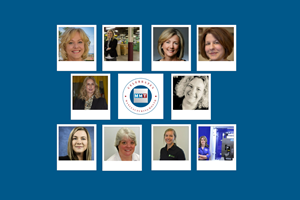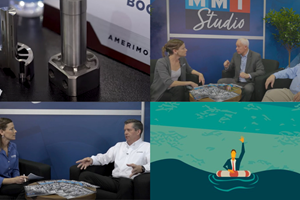The Entitlement Culture
Don’t let a culture of entitlement infect your organization.
It’s a shame what has happened to some of our best industries and the hundreds of thousands of employees working in those industries. Legacy airlines and behemoth automobile manufacturers are struggling for their futures. These companies have lost and continue to lose billions of dollars of shareholders’ money annually. I think one of the anchors pulling these companies down is the culture of entitlement that crept in over the years.
The culture of entitlement is a “you owe me” attitude, one where people believe that society, a company, or government owes them something and they do not have to earn or deliver value for what they receive. These people believe they are owed something because of who they are or what social group or union they belong to—not because of what they earn.
People who feel entitled take for granted what they have and keep asking for more, and the more they get the more they expect. They focus more on what they are owed than what they contribute. In a culture of entitlement, peer pressure to perform is replaced by peer pressure to conform to the lowest common denominator; looking good is more important than doing the right thing.
People need to realize that a company in a capitalist economy exists to enrich the shareholders. Companies do not exist simply to employ people. Companies employ people because it is necessary to reach the goal of enriching the shareholders. They should be thankful for the job. Yet, you see people trying to hold their company hostage with that “you owe me attitude” like the company owes them a job. Unfortunately, this attitude has crept out of the business world and is prevalent in many other aspects of our lives.
How do you know if you have a culture of entitlement in your company? A few of the signs would be giving employees raises just because it’s that time of year, giving promotions based on how long someone has worked for the company as opposed to how well they perform or having contests or incentives to get employees to do what they are already being paid to do. Do poor performers just get reassigned as opposed to being asked to leave?
We would all be better off as business owners and members of society if we foster a culture of merit as opposed to entitlement. Transitioning from a culture of entitlement to one of merit is not easy—it takes tough decisions, tough conversations, and it takes consistency. People who feel entitled hate being held accountable.
You can create a culture of merit by rewarding top performance and frowning on mediocrity. Run your business like a team and not a family. No one ever gets fired from a family and no matter what you do, you are still part of the family. On a team, members are motivated by peer pressure, the superstars are cheered and the slackers are booed and the weak team members are quickly replaced. You can’t mandate a culture of merit; you create one by expecting a lot from your employees, holding them accountable and celebrating the successes. Let your employees know that job security, advancement and pay increases are guaranteed only by high performance and company profits.
Foster a culture of merit in your company and you will see performance, quality and morale quickly go to new levels and the value of your company will quickly multiply.
Related Content
Women Impacting Moldmaking
Honoring female makers, innovators and leaders who are influencing our industry's future.
Read MoreHow to Improve Your Current Efficiency Rate
An alternative approach to taking on more EDM-intensive work when technology and personnel investment is not an option.
Read MoreEditorial Guidelines: Editorial Advisory Board
The Editorial Advisory Board of MoldMaking Technology is made up of authorities with expertise within their respective business, industry, technology and profession. Their role is to advise on timely issues, trends, advances in the field, offer editorial thought and direction, review and comment on specific articles and generally act as a sounding board and a conscience for the publication.
Read MoreFrom Injection Mold Venting to Runnerless Micro Molds: MMT's Top-Viewed June Content
The MoldMaking Technology team has compiled a list of the top-viewed June content based on analytics. This month, we covered an array of topics including injection mold venting, business strategies and runnerless micro molds. Take a look at what you might have missed!
Read MoreRead Next
Are You a Moldmaker Considering 3D Printing? Consider the 3D Printing Workshop at NPE2024
Presentations will cover 3D printing for mold tooling, material innovation, product development, bridge production and full-scale, high-volume additive manufacturing.
Read MoreHow to Use Continuing Education to Remain Competitive in Moldmaking
Continued training helps moldmakers make tooling decisions and properly use the latest cutting tool to efficiently machine high-quality molds.
Read More




_300x250 1.png;maxWidth=300;quality=90)








.jpg;maxWidth=300;quality=90)






